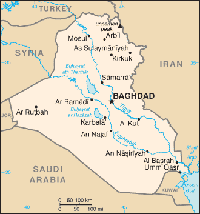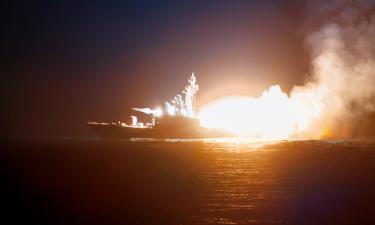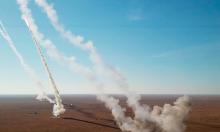Attacks in Iraq : 4 British soldiers wounded, 5 Iraqis killed
Insurgents fired more than 30 mortar rounds at a British military camp in southern Iraq on Monday, wounding four soldiers, officials said. Four Iraqis were killed and five wounded in two other attacks, including a roadside bomb that hit an oil tanker, sending a large plume of black smoke billowing over central Baghdad.

The mortar barrage occurred at about 4:30 a.m. (0030 GMT) at Camp Abu Naji in Amarah, 290 kilometers (180 miles) southeast of Baghdad, said British spokeswoman Capt. Kelly Goodall.
One of the British soldiers received a serious leg injury, but the other wounds were minor, said Holly Wheeler, a British Ministry of Defense spokeswoman in London.
The attack raised the total of British casualties in Iraq over the past nine days to six soldiers killed and five wounded. The attacks all occurred in southern Iraq, an area that has traditionally been far more peaceful that central and northern Iraq where U.S. forces are based.
On Saturday, two British soldiers were killed and one was wounded by a roadside bomb as they patrolled in their armored vehicle north of Basra city.
On May 6, four British soldiers died when their helicopter crashed in Basra, apparently downed by a missile. The attack triggered a confrontation in which jubilant Iraqi residents pelted British rescuers with stones, hurled firebombs and shouted slogans in support of a radical Shiite cleric. Five Iraqi civilians, including a child, died and about 30 were wounded in the melee as Shiite gunmen and British soldiers exchange. military personnel have died since the Iraq war began in 2003, according to a count by The Associated Press.
Elsewhere Monday, a drive-by shooting at about 8:30 a.m. killed four teachers who were heading to their school in a village near Balad Ruz, a town 80 kilometers (50 miles) northeast of Baghdad, police said. The attackers and the victims were both riding in minibuses, the private vehicles that charge small fees to transport the general public.
In central Baghdad, a roadside bomb targeting a police patrol missed the officers but killed one civilian, wounded four and set fire to an oil tanker parked nearby. "The explosion caused a huge fire," said police Capt. Ziyad Naji.
The attacks came after a day of widespread violence in Iraq that killed dozens of people, including 14 Iraqis who died in a double suicide car bombing on the main road to Baghdad's airport, and two American soldiers who died elsewhere in roadside bomb attack.
At least 2,439 U.S. military personnel have died since the Iraq war began in 2003, according to a count by The Associated Press.
The violence occurred as talks on a new Cabinet bogged down only a week before the constitutional deadline for completion of the process.
There had been hope that Prime Minister-designate Nouri al-Maliki would fill at least some Cabinet posts when parliament convened Sunday in Baghdad's heavily guarded Green Zone, perhaps even taking on for himself contentious roles such as the interior and defense ministries.
Al-Maliki's mandate to form a Cabinet expires May 22. Should he fail to do so, President Jalal Talabani would have 15 days to name a new nominee to try to form a Cabinet. The constitution is unclear on whether he could pick al-Maliki again.
Lawmakers have struggled since Dec. 15 parliamentary elections to put together a national unity government, which many Iraqis and the U.S. government hope will lessen sectarian tensions and undermine support for the Sunni Arab-dominated insurgency.
The negotiations have bogged down in squabbles over the allocation of key Cabinet jobs, unable to bridge sectarian and political divisions.
As the 275-member parliament convened, a party loyal to firebrand Shiite cleric Muqtada al-Sadr threatened to propose its own Cabinet list if other groups did not scale back their demands for roles in the new government.
Legislator Bahaa al-Araji of the United Iraqi Alliance denounced what he called U.S. meddling in the talks and set a deadline of two days to settle the matter. But the Shiite bloc has only 130 parliament members, which isn't enough votes to seat a Cabinet.
A coalition of three Sunni Arab parties holding 44 seats warned that it would withdraw from the political process if it did not get at least one key post such as the Defense Ministry.
That threat came several days after Shiite party with 15 lawmakers pulled out of the Cabinet talks because it was not given the Oil Ministry, reports International Herald Tribune.
I.L.
Subscribe to Pravda.Ru Telegram channel, Facebook, RSS!




